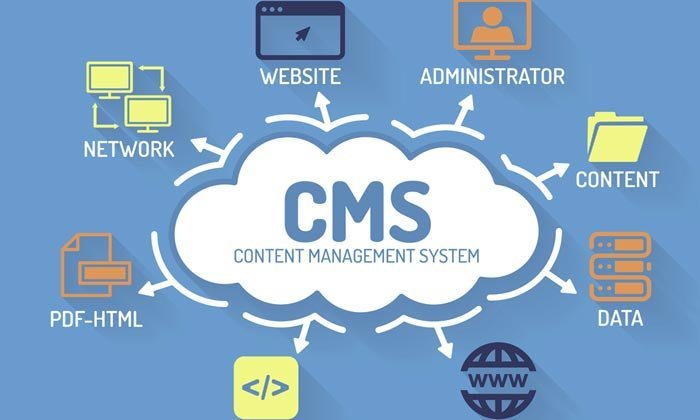Nine tips on choosing the best CMS for your website (and avoid future regrets)
Very often we read many articles in blogs and rrss with rankings of CMS (content management system). Lists with the most used, with the free ones, etc ... But what really matters before launching a website and work with a CMS or another? In today's post we will help you on that decision. We will discuss what points are relevant before deciding on any of the available options.

Very often we see articles in popular blogs with rankings about the different CMSs available.
The theme is so popular than even ourselves have created a few post in the blog about this. We can tell that we have written about CMSs options in two occasions in the last six months.
Have a look at our post with a benchmark of the most popular CMS in the market
If you have reached this point in your reading we are sure that you know already why a good choice in your CMS is so important.
Among other things, a CMS helps you keeping your site looking good and fresh, providing to your audience valuable content everyday. Everything under your control.
In our experience supporting our customers on their journey to became digital publishers, a good CMS must mach your particular needs. But there are general aspects that can make the whole experience easier.
In today's post we want to focus on a list of 9 criteria to take into account when deciding going ahead with one CMS or another.

We will always bet that our Opennemas CMS is the best, but we rather want you to focus on the points below and reach this conclusion by yourself.
Lets begin ...
1. Accessibility: The perfect CMS should be the most accessible. Even for those who know nothing about web design. The configuration of the cover, writing text, uploading an image... should be as easy as, for example, modifying a document in Word, intuitive and functional.
Look for options that allow you to drag elements, copy and paste photos... You don't want to entering in a spiral of doubts every time you need to change some text or upload a video.

2. SEO friendly: SEO is crucial when we talk about creating content online. Therefore it is essential that the right CMS has features for making our life easier when writing text for SEO, such as characters count tools, the possibility of customizing and creating the slug of our content, tags, including video , etc...
A SEO-oriented CMS is essential for any type of web, online store or a digital newspaper.

3. Customizable design: It is increasingly common to find two websites that look exactly the same. This is due the massive use of platforms based on themes like WordPress.
But in a world of unique websites, it's more important than ever to stand out from the crowd with an incredible web design. The general recommendation would be to choose a CMS that allows you to customize 100% a standard template.

4. Updating content online and by several users: A good CMS should allow anyone within the team to make edits without requiring IT support, developers or an external agency. In short, it should not be necessary to have outside help to change a text or to move a photo.
Ideally, your CMS, should allow you to update anything with just a device (computer, tablet or phone) and a Internet connection. Look for solutions that don't require to work in a specific computer and with a software that you need to download every time.

5. No to one-fits-all solutions: CMS platforms usually come with applications, sometimes called modules or add-ons, either with the starting kit or as a complement and / or an extension of the platform.
Our general recommendation would be that you look for a CMS that offers ready-to-use applications that do not encompass a single mindset for everyone, but that can be customized to meet the needs of your website.

6. Mobile friendly: Absolutely essential. Make sure that your CMS is compatible with mobile users, so that you can reach your desired audience without problems on all channels and devices.

7. Speed: When you hear the term speed related to CMS platforms, it can mean many different things. One of them is its installation or configuration. Another is the loading speed of the page and the speed which the CMS represents the content.
Not all CMS platforms are the same, so research well the robustness of the different options. There is no sense for having a CMS with a super speed of loading, if every time you try to edit text within the platform changes are not saved or "hangs up" constantly.

8. SaaS CMS: The SaaS model works with a monthly payment that generally covers the hosting, software license and support.
SaaS providers, like us, continually update the CMS platform without you having to do anything. These updates correct errors, improve performance and add more functionality.

9. Support: This point is crucial. Not all CMS platforms come with support options. For example, many open source applications do not offer direct access to support teams.
However, most of the closed source or SaaS products offer technical support and periodical updates to all the sites that run their platform. So you do not have to worry about possible technical problems.

So, now that you know more about the crucial aspects when choosing a CMS what are you waiting for? With Opennemas you can create your own digital site completely free of charge thanks to everything that our content management system offers you. Do you want to know how? Click here, and we'll tell you how.







